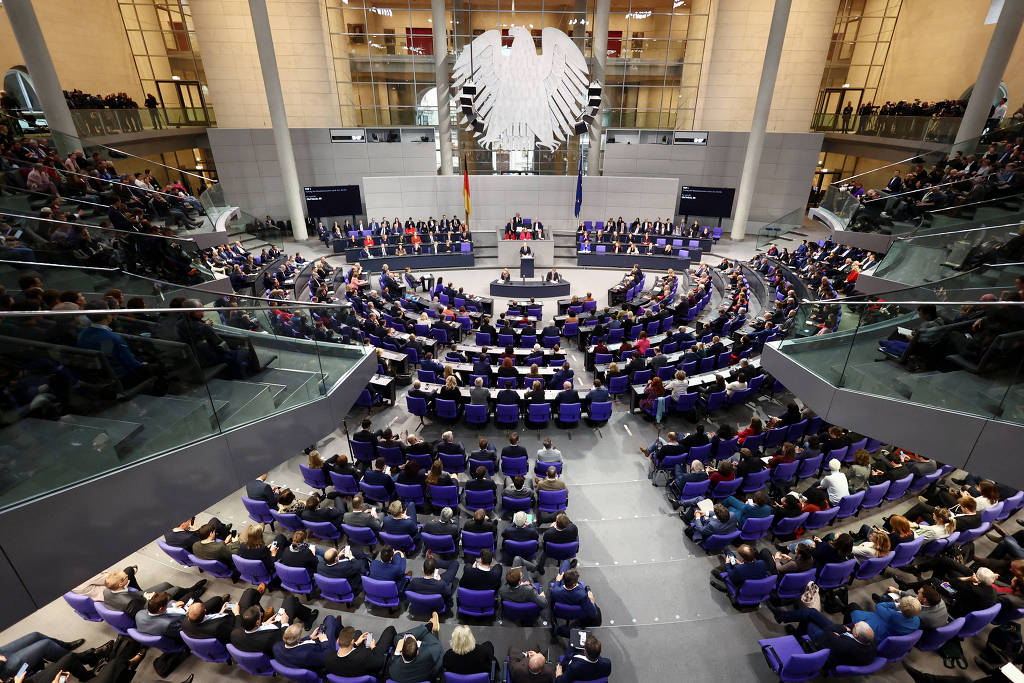
Published 12/19/2024 08:29
Germany reaches the end of 2024 in a state of political suspense, even though the genre does not seem to belong to the well-known Germanic predictability. The fall of Olaf Scholz’s coalition, the unshakable prime minister, should reconfigure the political chessboard of the most powerful country in the European Union. Faced with the impasse, a question echoes through the streets of Berlin and the corridors of Brussels: is this the beginning of a new order or the harbinger of unpredictable chaos?
Germany has held only three early elections since the fall of the Nazi regime, in 1972, 1983 and 2005, a history illustrative of the German predilection for political stability (a direct inheritance of the trauma of the Weimar Republic and the Third Reich).
Still, the “Ampelkoalitiont” (traffic light) coalition of PSD social democrats (red), ecologists (green) and FDP liberals (yellow) proved to be less cohesive than expected, and was fragmented. by the imposition of fiscal austerity defended by the FDP.
Scholz’s government lost this Monday (16) a vote of confidence in the Bundestag, the German Parliament. Scholz had 207 votes in favor, 394 against and 116 abstentions. As a result, the management will be dissolved and national elections will be brought forward to February.
With the result of the vote, German President Frank-Walter Steinmeier will have three weeks to dissolve the Chamber and call new elections. An agreement between the parties provides that the vote will take place on February 23.
The coalition’s implosion is a warning sign that resonates beyond Germany’s borders. The AfD, a far-right party, observes the political situation from the flank with a hungry expression. In the east of the country, its presence is increasingly robust, fueled by nationalist and anti-immigration rhetoric. Even though the memory of Nazism hangs like a ghost over the country’s population, the AfD’s ability to repackage extremist speeches in an apparently modern guise worries Democrats of all colors.
Meanwhile, Friedrich Merz’s CDU (Christian Democrats), the party that Angela Merkel led for 16 years, leads the polls. But the front is shy. According to a research aggregator from Financial Timesthe CDU bloc has 32.4% of voting intentions, followed by the AFD with 18.1%, almost double what it had in the last elections, in 2021 (10.3% of votes). The red SPD, under current Chancellor Olaf Scholz, has 15.8% of preference, while the liberal FDP has 4%.
The CDU is far from guaranteeing a majority and, like the previous coalition, faces the puzzle of putting together alliances with partners who disagree on core policies – especially on how to lead the economy in times of war and energy transition.
The FDP liberals, whose fiscal rigidity was partly to blame for the collapse of Scholz’s coalition, show little appetite for compositions that challenge their mantra of budgetary responsibility. It remains to be seen whether, even in the face of the risk of instability and the threat from the extreme right, they will be willing to negotiate. In Germany, coalitions are a delicate art, but the failure of “traffic light” left a scar that could discourage new coalitions.
And Olaf Scholz? The social democrat who succeeded Merkel, with the promise of stability, now finds himself in political limbo. The former Finance Minister, known for his technocratic rectitude, faces a crisis that transcends his figure. His administration was overshadowed by colossal challenges: a war in Ukraine, energy crises and a global market that resists the green transition. Even so, it is unlikely that he will disappear from the scene anytime soon. The Social Democrats may not lead the next coalition, but Scholz will remain an influential figure.
On the horizon, international tensions keep Germany in a central role. The war in Ukraine puts pressure on Berlin to strengthen its position in NATO, while reduced dependence on Russian gas has not yet been fully replaced by a cohesive energy strategy. The relationship with Moscow, historically pragmatic, has become a labyrinth of sanctions, harsh speeches and subterranean fears.
Germany is at a crossroads, and the paths are winding. For progressives, the dissolution of Scholz’s coalition is an invitation to reimagine alliances that return the country to the path of national developmentalism, the economic model that made Germany the leading European power.
Source: vermelho.org.br

